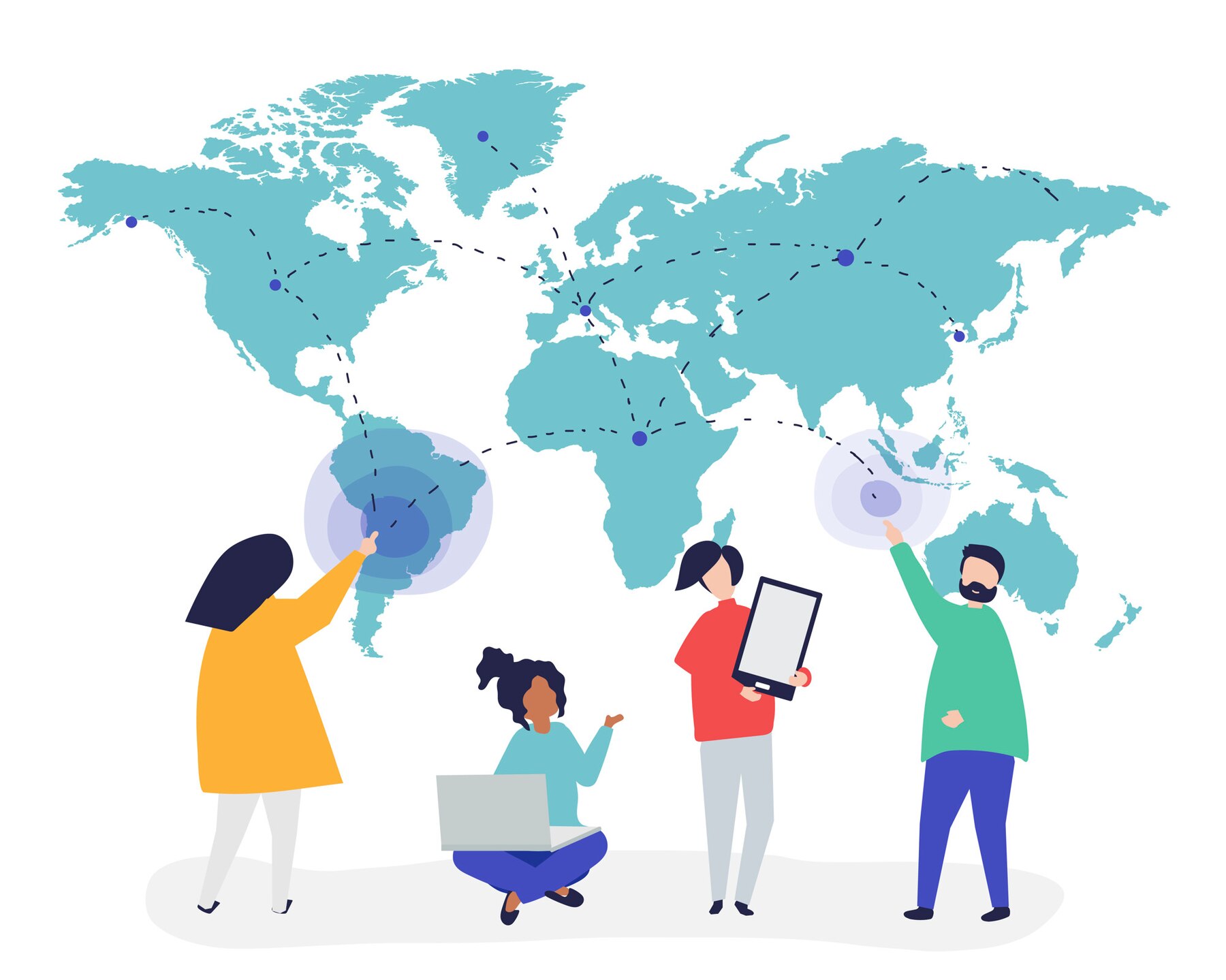Table of Contents
Have you ever found yourself in a heated argument with a colleague, yet the issue remained unresolved? Or perhaps your work stalled simply because you didn’t know how to seek help? Maybe you’ve struggled to fit into a new environment or team. These common challenges often stem from a lack of communication skills and experience. What exactly are communication skills, and why are they so crucial in the workplace? Let’s explore.
Table of Contents
What Are Communication Skills?
Communication skills refer to the exchange of information between individuals in the workplace, whether it’s among colleagues or between employees and the organization. This can take many forms, from face-to-face discussions to indirect methods like emails, chats, or virtual meetings.
Effective communication is key to accessing vital information that enhances productivity and drives organizational growth. Furthermore, good communication fosters a positive work environment where individuals understand and support one another, leading to stronger team cohesion and overall success.
Why Good Communication Enhances Work Efficiency
A 2024 survey conducted by Expert Market revealed that 86% of employees believe that a lack of collaboration and effective communication is the primary cause of inefficiency in the workplace. Moreover, 97% of employees stated that communication impacts their daily work performance. When employees are provided with better communication tools and skills, productivity can increase by up to 30%.

Additionally, 28% of employees said poor communication is why they miss deadlines. The report also highlighted that ineffective communication causes employees to lose an average of 7.47 hours of work per week. An average employee earning $66,976 annually translates to a sunk cost of $12,506 per employee per year. Across the entire market, these losses are estimated at around $37 billion annually.
This data clearly shows how ineffective communication can severely affect work performance.
To provide a specific example, I would like to share a personal experience.
When I first joined BraveBits and started working on a new project, I encountered several challenges, most of which were due to ineffective communication. Mai, the project’s product owner, and I worked closely together, but we both had direct and sometimes hot-tempered personalities. Additional external factors also strained our collaboration, significantly impacting our progress.
When the conflict peaked, we realized that a conversation was necessary. After nearly two hours of discussion, Mai and I began to understand each other’s thought processes more clearly. We acknowledged that our emotions had been too influential in addressing work issues. Furthermore, we had failed to take the time to understand each other’s perspectives, which had hindered empathy and mutual understanding.

That conversation also helped us find solutions to the outstanding issues. We began by adjusting our tone and attitude during discussions, becoming more patient, and thoroughly evaluating everything before offering opinions to convince the other. Thanks to these quick reflections and improvements in communication, our work sped up significantly. While disagreements still arose, they were resolved with the goal of finding the most suitable solution for the current situation.
What Helped Us Overcome That Difficult Phase?
Recognizing mistakes and offering a concise, proactive apology.
During the meeting, we began by apologizing and acknowledging our mistakes. We then had an open discussion about the flaws in our communication and work processes. The insights we gained from that discussion led to significant progress in our collaboration. We collaborated to generate innovative ideas and execute highly efficient solutions for the project.
Starting with a sincere and proactive apology made the conversation much easier. We became more open to sharing and acknowledging our shortcomings and those of others. Admitting mistakes is the first step to success.
Always Strive to Understand Your Colleagues’ Roles and Responsibilities
Understanding your colleagues’ roles and responsibilities helps foster a broader perspective. When you grasp their roles in the project, their duties to the product and company, and how those overlap with your own, you’ll start to recognize which issues need thorough debate and which tasks are better to their expertise.
After our conversation, Mai and I still encountered conflicts, but no matter how intense they were, they always ended with reflection. We would reassess our responsibilities and roles to find the most suitable solution.
 I once read a quote by Confucius: “The tall can lower a bit, the full can lessen a bit, the rich can become a little poorer, the wise can act a bit foolish, and the brave can become a little more cautious…” This means we must adapt ourselves to different situations. In communication, this translates to respecting others’ roles, work, and responsibilities. When we show empathy and respect, we are more likely to receive the same in return, and conversations will flow more smoothly, leading to better outcomes.
I once read a quote by Confucius: “The tall can lower a bit, the full can lessen a bit, the rich can become a little poorer, the wise can act a bit foolish, and the brave can become a little more cautious…” This means we must adapt ourselves to different situations. In communication, this translates to respecting others’ roles, work, and responsibilities. When we show empathy and respect, we are more likely to receive the same in return, and conversations will flow more smoothly, leading to better outcomes.
Success Begins with Listening
My time with Mai reinforced the lessons I had learned before joining BraveBits. Before that, I had a Japanese manager from whom I gained many valuable insights. One of the most important lessons he taught me was the art of listening.
In every meeting, he was always patient and attentive. I remember one instance when I was extremely frustrated with the dev team. I scheduled a meeting with him, and during that meeting, I spoke for fifteen minutes in an angry and frustrated tone. He listened patiently, without interrupting. Once I finished, he handed me a glass of water and said, “I can tell you’re very upset; I can hear it in your voice. Calm down a little, and I’ll work with you to resolve this.” We then had a thorough discussion, and he didn’t miss a single detail. His advice helped me resolve the challenges I was facing.
In another situation, I witnessed a heated argument during a meeting. He sat quietly, listening and taking notes. After an hour of fruitless debate, everyone turned to him for input. After patiently listening to the grievances, he offered a sincere apology. He acknowledged that the conflict stemmed from issues in the team’s workflow, which he took responsibility for. He thanked the teams for their efforts and explained that he would reflect on the concerns but would not provide a solution immediately. He reasoned that everyone was too emotional, and proper listening would not be possible. He promised to offer a solution in a follow-up meeting when the atmosphere would be more conducive to productive communication.
He often told me that listening is the first step to success—a simple truth that knows but is not easy to practice. He urged me to be more patient, to sit down and listen rather than rush to respond.
Use short, concise, and precise language
I usually express myself more clearly in writing than in speaking, as verbal communication makes it difficult to convey my ideas. In the past, negative reactions from listeners undermined my confidence, leaving me confused and aware that I was off-topic or overly verbose.
After exploring and applying various techniques, I’ve made significant progress. One method I use is gathering and analyzing information beforehand, focusing on key points, and using concise, precise language for effective communication.
This approach has boosted my confidence, making my presentations clearer and more efficient. With confidence, I now view negative reactions as signals to adjust my approach rather than discouragement.
The Quality of Communication Creates an Effective Team
According to a study by Expert Market, improving internal communication can boost organizational productivity by up to 25%. Poor communication undermines the trust of 45% of employees, highlighting the critical role communication plays in enhancing team performance.
The Importance of Teamwork
Gene Wilkes wrote in Jesus on Leadership that the power of teamwork is not just evident in today’s business world but has been recognized since ancient times. Even a brilliant individual cannot ensure the success of an entire team.
For a team to be effective, communication skills are essential in addressing challenges within the group and in the workplace. Good communication helps build stronger teams, resolve conflicts, increase productivity, and foster personal and professional growth.
How Communication Among Team Members Enhances Efficiency
Let’s begin with the concept of “community awareness.” This refers to a state in which team members, through communication, become more connected and foster a sense of unity and harmony.

The key to achieving this state of honest, trusting, and empathetic exchanges between members. Without establishing these essential foundations, communication will inevitably suffer from ineffectiveness caused by a lack of trust.
During a basic BA course I attended, the instructor shared valuable insights on communication when working with a product development team: “You must have trust in your teammates. Always listen to their opinions, and in return, contribute what you know. Analyze specific situations to build a product with useful features for users. The knowledge of one individual alone is not enough to create a successful product. A successful product is built through the collective effort of all resources.”
Imagine writing out a feature but neglecting input from the design or technical teams—your product may lack practicality and fail to meet the user’s needs.
Building a Friendly Work Environment of Learning, Sharing, and Embracing Imperfections
Initially, while studying theory, I didn’t fully grasp its importance. However, through real-world experience, I learned my instructor’s teachings. I realized that when creating a design, I needed to assess its feasibility. This meant collaborating with colleagues, such as the dev team to evaluate technical feasibility and the PO to evaluate product goals, timelines, and resources.
We must learn from each other, share knowledge, and accept imperfections, helping each other grow and improve.
Another valuable insight I gained is that these principles apply not just to work, but also to broader office interactions. For example, while writing this piece, I sought feedback from my colleagues, Đức Anh and Hà Mai. Their constructive input helped refine and improve my writing, making it more detailed and focused.
Trusting and collaborating with colleagues provides a solid foundation to achieve shared goals. In our collaborative space, open communication and the freedom to share ideas without fear of criticism are essential. Respecting each other’s roles is essential for creating a harmonious, dynamic, and successful work environment.
Elevating Others Means Elevating Yourself
A lesson I learned early on from my first graphic design instructor resonates deeply: “If you’re truly skilled, don’t be afraid to share. Those who excel don’t hide their knowledge out of fear of being surpassed.” This philosophy shaped my approach to my career. From the start, I’ve been eager to learn and share what I know with colleagues. It’s not about assuming expertise but improving through the collaborative exchange of ideas. Sharing knowledge not only helps others but also reinforces your understanding and mastery.

Moreover, enhancing the capabilities of your colleagues strengthens their trust in you, fostering a sense of unity within the team. Trust is essential in any organization. To succeed, team members must believe in one another’s abilities and work collaboratively toward shared goals.
However, team dynamics aren’t always smooth. Conflict is inevitable. Tensions may arise, but resolving these challenges requires keeping the team’s collective success at the forefront.
As a leader of a congregation of over 20,000 people once said, “We may have intense debates during meetings, but it’s because we’re committed to the team’s goals. Afterward, we move forward, recognizing that the issue won’t be solved through conflict alone.” This mirrors my own experience while working on the TailorKit project.
Conclusion
Ultimately, communication is a critical skill. It’s not just about professional success but also about fostering critical thinking and reducing personal stress. Those who communicate well are more confident and decisive, strengthening their capacity to navigate diverse situations effectively.
